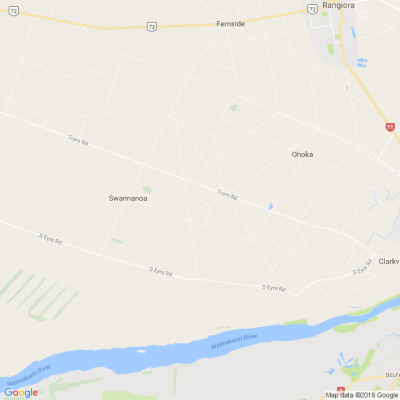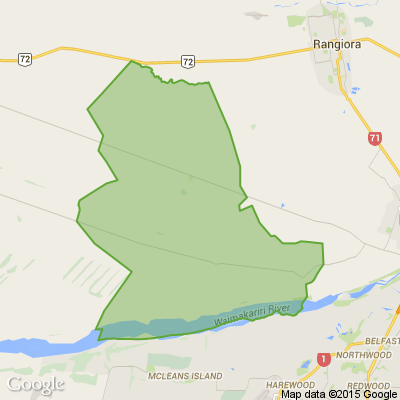Addressing historical greviances
By David Hill, Local Democracy Reporter
Local Māori will soon be able to return to live on their customary land.
Waimakariri District Council chief executive Jeff Millward says the proposed Waimakariri District Plan, which was notified in September 2021, includes special purpose zoning for Māori Reserve 873, between Kaiapoi and Rangiora.
This included allowing for up to seven houses on a four hectare section.
These have been incorporated into the draft Greater Christchurch Spatial Plan, which has recognised the need for infrastructure investment for kāinga nohoanga (places of residence) across the Greater Christchurch area.
"Historically they have been prevented from living on their own land and growing crops for mahinga kai," Millward said.
The National Policy Statement on Urban Development stated that well-functioning urban environments needed to have a variety of homes, and this included enabling Māori to express their cultural traditions and norms.
Māori Reserve 873, which included the kāinga (village) of Tuahiwi and the surrounding rural area, was set aside by the Crown in 1848 as a kāinga nohoanga.
The 1868 Native Land Court defined Ngāi Tahu mahinga kai and whānau rights.
But subsequent territorial authorities, including the Waimakariri District Council, which was established in 1989, had overlooked the history and introduced rural zoning rules and applied them to Māori Reserve 873.
Most recently, about 2005, the Waimakariri District Council changed the rural zoning for the reserve to 10 acres without consulting with the rūnanga.
This was unworkable as properties were already much smaller and had multiple houses on them.
The land grievances were due in part to different cultural understandings and the complexity of Māori ownership.
Māori practised Kaitiakitanga (stewardship) where resources including land were looked after by the hapū for the next generation.
The consequence has seen Māori lose the ability to use the land for mahinga kai and whānau have been unable to live on the land.
Comment was sought from Ngāi Tūāhuriri.
■ Public interest journalism funded through New Zealand on Air.

🧩😏 Riddle me this, Neighbours…
I am an odd number. Take away a letter and I become even. What number am I?
Do you think you know the answer?
Want to stop seeing these in your newsfeed? No worries! Simply head here and click once on the Following button.

Poll: 🤖 What skills do you think give a CV the ultimate edge in a robot-filled workplace?
The Reserve Bank has shared some pretty blunt advice: there’s no such thing as a “safe” job anymore 🛟😑
Robots are stepping into repetitive roles in factories, plants and warehouses. AI is taking care of the admin tasks that once filled many mid-level office jobs.
We want to know: As the world evolves, what skills do you think give a CV the ultimate edge in a robot-filled workplace?
Want to read more? The Press has you covered!

-
53% Human-centred experience and communication
-
14.6% Critical thinking
-
29.6% Resilience and adaptability
-
2.7% Other - I will share below!
Some Choice News!
DOC is rolling out a new tool to help figure out what to tackle first when it comes to protecting our threatened species and the things putting them at risk.
Why does this matter? As Nikki Macdonald from The Post points out, we’re a country with around 4,400 threatened species. With limited time and funding, conservation has always meant making tough calls about what gets attention first.
For the first time, DOC has put real numbers around what it would take to do everything needed to properly safeguard our unique natural environment. The new BioInvest tool shows the scale of the challenge: 310,177 actions across 28,007 sites.
Now that we can see the full picture, it brings the big question into focus: how much do we, as Kiwis, truly value protecting nature — and what are we prepared to invest to make it happen?
We hope this brings a smile!








 Loading…
Loading…